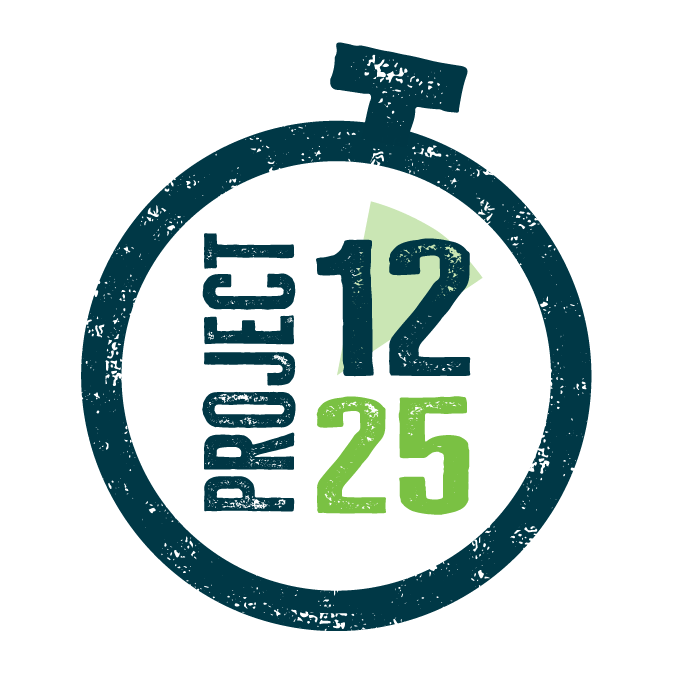On this page
- Checklist for starting your business
- Registering your business
- Changes to your business
- Transfer Ownership of an existing premises
- Licence expired
- Inspections
- Hairdressers
- Camping Grounds
- Funeral Directors
- Offensive Trades
Checklist for starting your business
All people and businesses who wants to do hairdressing, barber, camping ground, funeral homes and offensive trades, must hold a health licence granted by the Council. Licences are required to ensure that the equipment and spaces are appropriate and procedures and hygiene practices are in place.
All businesses selling food must hold a Certificate of Registration, also known as food licence and will need to find a verifier to get verified. Here is step by step checklist to help you with your journey.
Step 1: Check with the health team and different council departments such as planning, building, trade waste and roading and/or parks (if applicable) to ensure compliance with the other legislative requirements.
Step 2: After checking with all relevant Council departments, think about how you would like to proceed by sorting out the procedures, equipment, spaces, staffs, finances and other to ensure you are ready to start and register your business.
Step 3: Register to get your health licence by filling out the online form and submitting.
Step 4: Once you have registered, a pre-inspection will be conducted by an Environmental Health Officer to ensure you have the appropriate procedure, equipment and spaces.
Step 5: If there are any issues, another site inspection may be conducted. If there are no issue, or if the issues have been completed, then you should now be free to operate.
You should now be fine after this and just let us know if there are any other changes in your operations, scopes or details by calling us or sending us an email.
Registering your business
If you want to open or take over one of the businesses that was mentioned above, you should contact us to be registered and inspected. For more information, refer to Registering and changes to your business.
Changes to your business
You must notify the Environmental Health team about any changes in your business to ensure compliance with the legislations. This includes change of ownership, change of address, change of contact details, and change to the nature of the business.
My licence is about to expire, what do I do?
When your registration certificate (licence) is about to expire (around the end of August each year), a reminder will be send to you to renew your licence. It’s really important that you have a current registration certificate at all times, since it could result with a late fee may be charged or a cancellation of your licence, so contact us if you have not received a renewal letter from us yet by August.
Inspections
An Environmental Health Officer will inspect any premises with health licences and sites that causes nuisance. This is annually being conducted to ensure all premises are following the required legislation with fees included with the registration.
Licence and Certificate
All licence issued must always be displayed in a prominent area of the premises for the public to see.
Hairdressers
Any hairdresser and/or barber must be registered and inspected on an annual basis. Our Environmental Health Officers inspect these, including mobile and home based businesses, to make sure that they comply with the Health (Hairdressers) Regulations 1980 [legislation.govt.nz]. The Health and Hygiene Bylaw (refer to our Bylaws page) can also be a guide on issues such as infection risks, decontaminating equipment, and hygiene and cleanliness.
Before your business opens to the general public, it must be pre-inspected to ensure compliance with the said Regulation. Operator must also check with the other Council department as mentioned above. It is important that all businesses comply with any relative legislations which the Council can help to ensure that this happens.
It is the operator’s responsibility to prevent infections, especially when items such as razors, scissors, combs, clippers and hairpins accidentally pierce the skin. Any amount of blood or body fluids, often invisible on equipment or on working surfaces, can transmit infection, putting both clients and staff at risk. Successful hairdressers and barbers will always have good health and hygiene practices, with staff who make sure that their clients are safe from the spread of infectious diseases. Unclean premises and unsafe procedures can put the health of both staff and clients at risk.
Camping Grounds
Camping grounds must be registered and inspected on an annual basis. All camping grounds must comply with the Camping-Grounds Regulations 1985 [legislation.govt.nz] and the Health Act 1956 [legislation.govt.nz]. EHOs ensure that the activities of the camping ground do not pose any public health risks before registration is approved. Operators must have appropriate spaces and equipment with good operating standards and practices when they run their camping grounds.
Before your business opens to the general public, camping ground operators must also check with the other Council department as mentioned above for approval. It is important that all businesses comply with any relative legislations which the Council can help to ensure that this happens.
Operators need to ensure that the camping ground have a camp plan, site and camp numbers, appropriate and adequate provisions, clean and well maintained premises, good operating standards and practices, and records when running their camping ground.
Funeral Directors
Any funeral director premises must be registered and inspected on an annual basis. These premises must comply with the Health (Burial) Regulations 1946 [legislation.govt.nz] and the Health Act 1956 [legislation.govt.nz]. EHOs ensure that funeral homes or mortuaries do not pose any public health risks before registration is approved. Funeral directors must have appropriate spaces and equipment with high operating standards and practices. when they run their premises.
Before opening your business to the general public, funeral directors must also check with the other Council department as mentioned above for approval. It is important that all businesses comply with any relative legislations which the Council can help to ensure that this happens.
Operators must ensure that the mortuaries are erected on the ground floor, with appropriate surfaces which are easily cleanable and impervious to water, proper procedures and practices, have appropriate lighting and ventilation with fly-proof screens for windows or other opening, mortuary to only used as it’s intended use, have appropriate disinfectant, coffins have sufficient absorbent material and not in direct sunlight, with suitable drainage in the slab table.
Offensive Trades
All businesses that operate, trade, manufacture or undertake the following activities are regarded as operating an offensive trade:-
- Blood or offal treating
- Bone boiling or crushing
- Collection and storage of used bottles for sale
- Dag crushing
- Fellmongering
- Fish cleaning
- Fish curing
- Flax pulping
- Flock manufacturing, or teasing of textile material for any purpose
- Gut scraping and treating
- Nightsoil collection and disposal
- Refuse collection and disposal
- Septic tank desludging and disposal of sludge
- Slaughtering of animals for any purpose other than human consumption
- Storage, drying or preserving of bones, hides, hooves or skins
- Tallow melting
- Tanning
- Wood pulping
- Wool scouring
These premises must be registered and inspected on an annual basis. Our EHOs base the inspection under the Health Act 1956 by ensuring that these activities and premises does not create nuisance and waste are disposed properly.
Before your business opens to the general public, it must be pre-inspected to ensure compliance with the said Act. Operator must also check with the other Council department as mentioned above especially with planning and trade waste team. It is important that all businesses comply with any relative legislations which the Council can help to ensure that this happens.
It is important that the waste that comes from these commercial and industrial premises is processed appropriately. (This does not include domestic sewage and wastewater systems.) It is also important that operators use good operating standards and practices, so that the quality and quantity of discharges into our waterways is controlled. These premises must also follow the Trade Waste Bylaw (refer to our Bylaws page).
Failure to comply with the Health Act 1956 and it’s regulations
A person commits an offence under the said Act and Regulations if they breach or fails to comply with any of the following:
- to get in contact with us about any changes,
- not complying with a requirement, standard, order,
- obstruction of inspection,
- not paying fees,
- or not being registered
These failures or breaches are offences which a person may be liable on conviction to a fine.
Refer to the Health Act 1956 [legislation.govt.nz] for more details.
Complaints
Please get in touch if you have any concerns or feedback about our service.
Our environmental health team also investigate a range of matters relating to public health, including:
- Unregistered premises,
- industrial noise – businesses that causes noise contravenes the District Plan.
- concerns about any premises, business or activities that was mentioned in this page.
- complaints relating to health nuisance, i.e. pests related to the said premises, cleanliness or a premises, no ablutions, etc.
Some complaints that relates to smell, fumes, smoke or odour will go to Environment Southland.
Illnesses may need to go to Public Health South. For serious concerns, please call the emergency services.
For more information, refer to Environmental Health Complaints.
Fees and Charges
Fees are charged for new and renewal of registration applications which must be paid before a current registration certificate will be issued.
Registration renewals happen every August annually and each will include an inspection. These will be invoiced automatically at the appropriate time.
Additional fees may be charged at any stage including revisits, complaints and how long these problems or ongoing matters of concern are addressed.
For a full list refer to Environmental Health on the Fees and Charges page.
Need help?
If you have any question, issue or concern, please do not hesitate to ask us. Contact the Environmental Health team on:
- Phone 03 211 1777
- Email dutyhealth@icc.govt.nz

